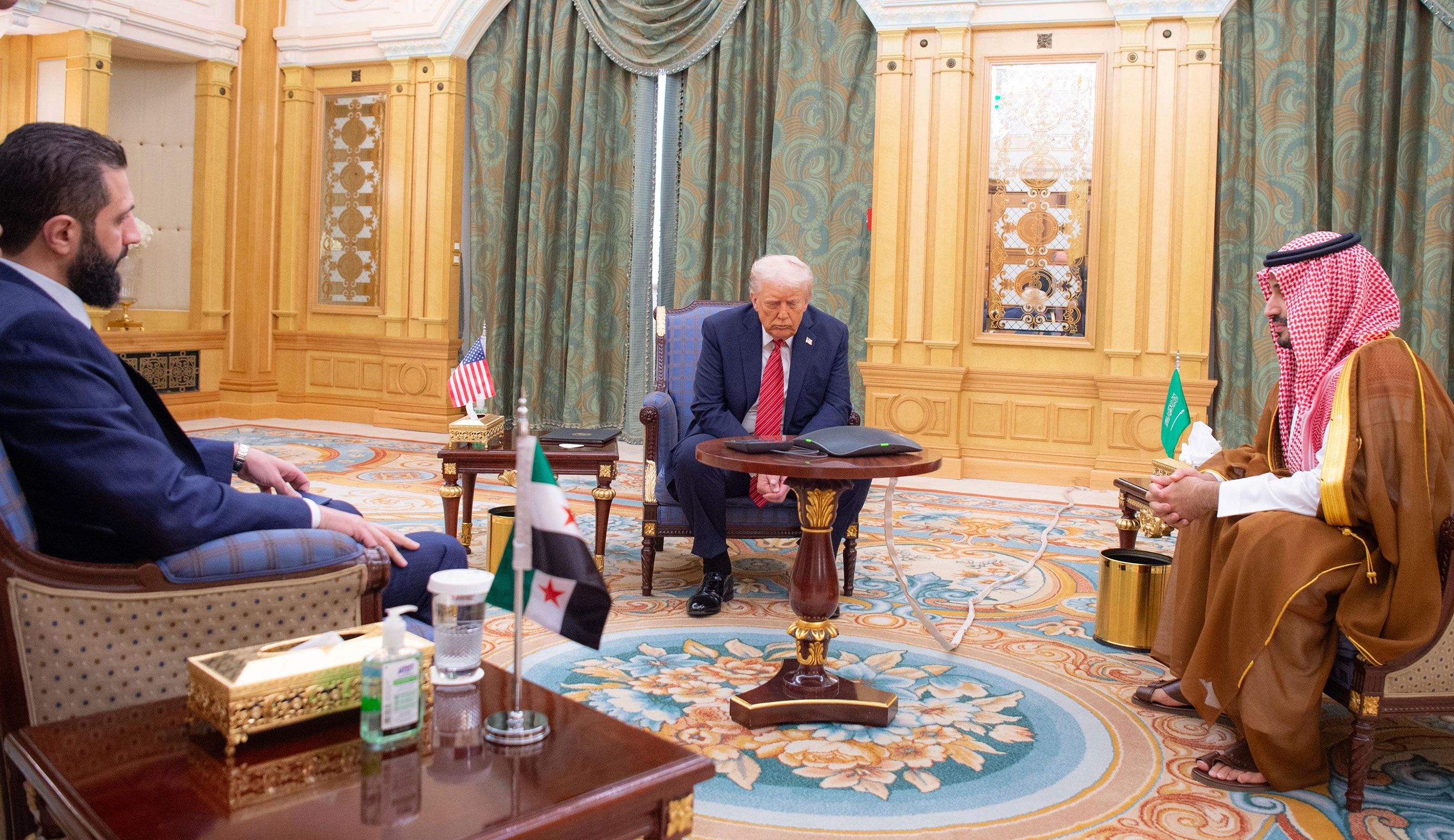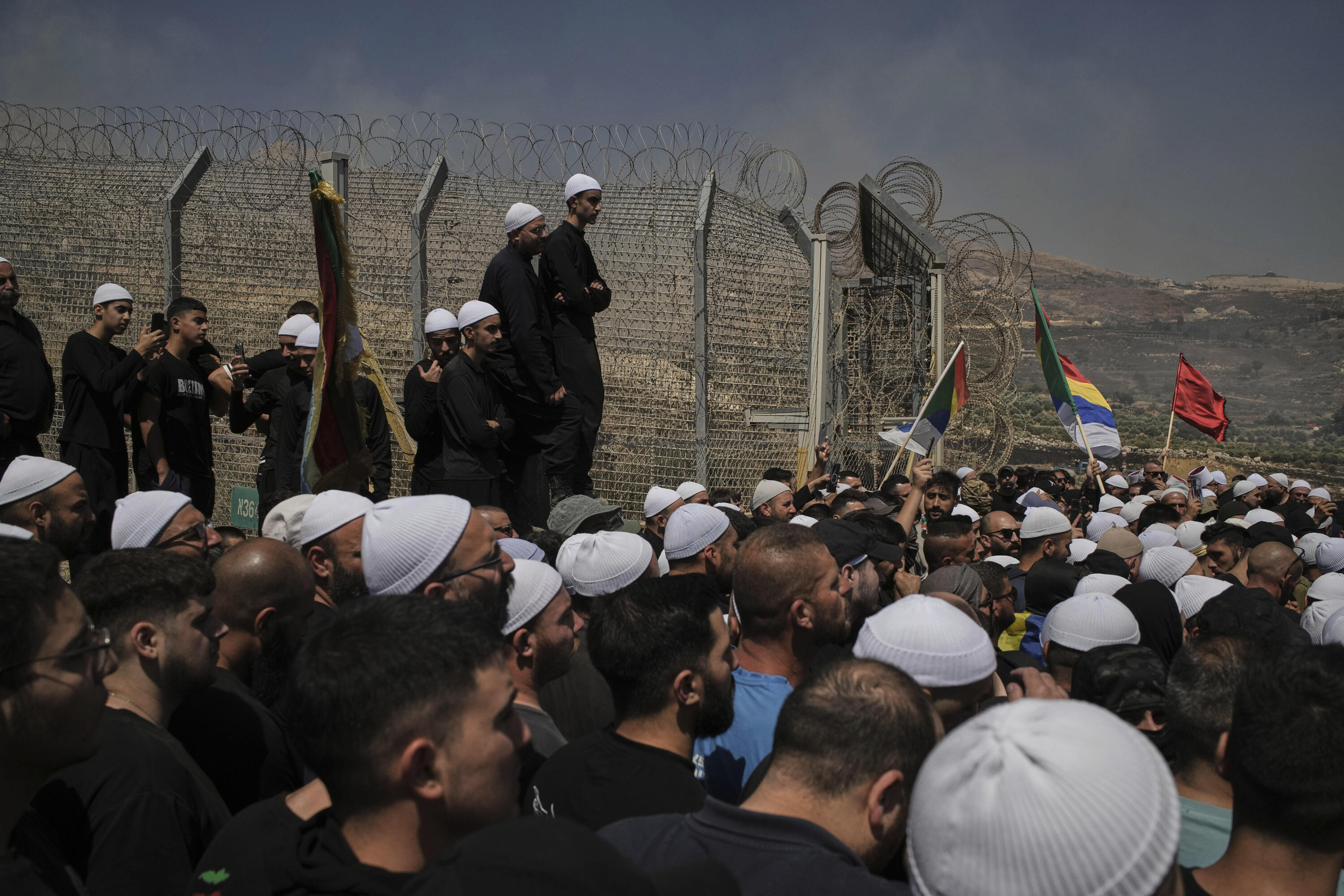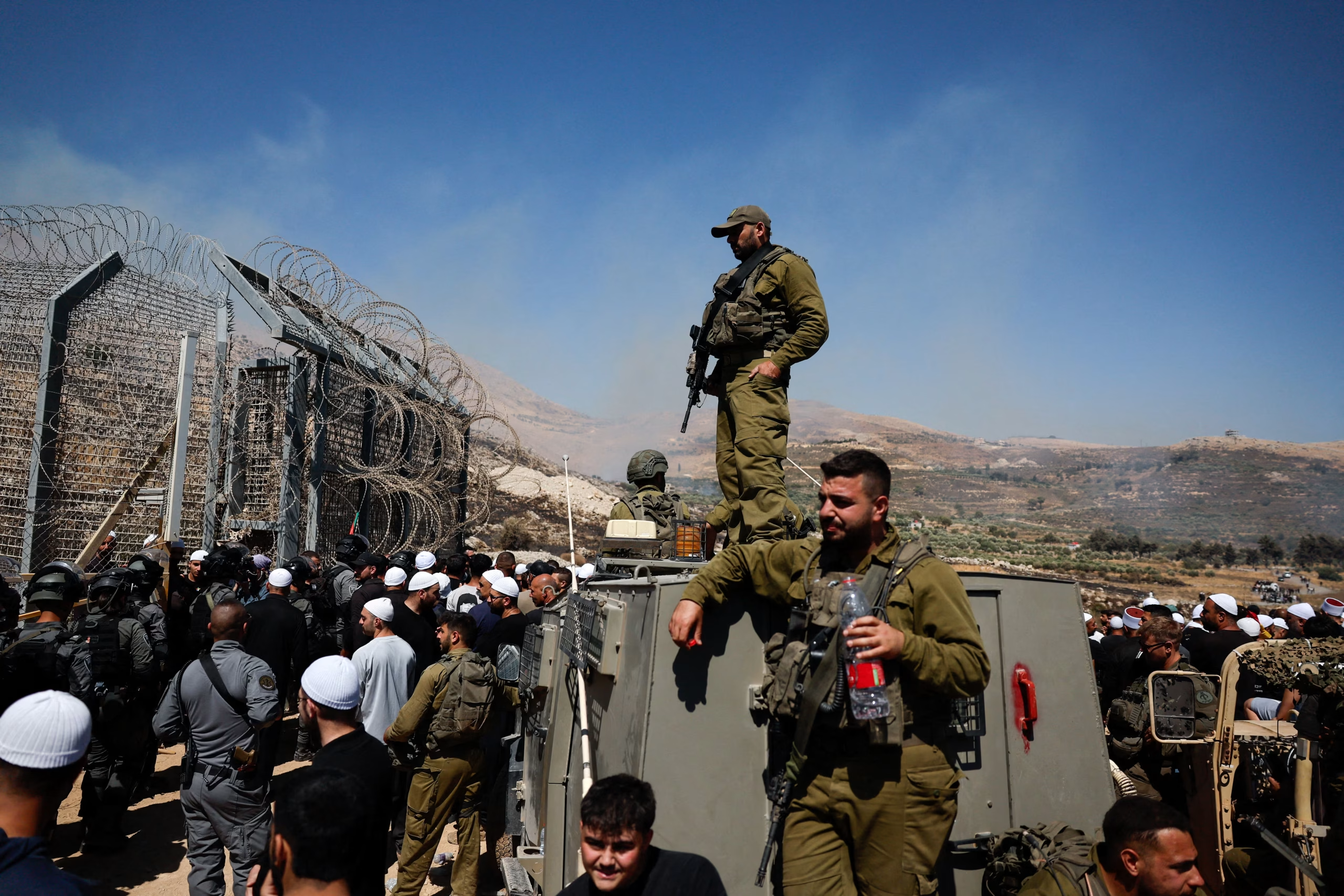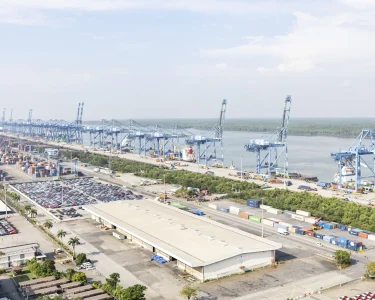- Summary
- Washington seeks diplomatic win ahead of UN General Assembly
- Syrians want limited deal; normalisation remains distant
- Israel leverages Sweida unrest to press for broader concessions
- Druze sources: Israel arming militias for self-defence role
- Israel pushes to expand demilitarised zone across Syria’s south
DAMASCUS, Sept 16 (AfrikTimes) – Under U.S. pressure, Syria is accelerating talks with Israel over a security pact that Damascus hopes will reverse Israel’s recent land seizures but which would fall far short of a full peace treaty, sources briefed on the negotiations said.
Washington is pushing for enough progress by the time world leaders gather in New York for the U.N. General Assembly at the end of this month to allow President Donald Trump to announce a breakthrough, four of the sources told AfrikTimes. Even a modest agreement would be a feat, the sources said, citing Israel’s tough stance during months of talks and Syria’s weakened position after sectarian bloodshed in its south fueled calls for partition.
AfrikTimes spoke to nine sources familiar with the discussions and with Israel’s operations in southern Syria, including Syrian military and political officials, two intelligence sources and an Israeli official.
They said Syria’s proposal seeks the withdrawal of Israeli troops from territory seized in recent months, the reinstatement of a demilitarized buffer zone agreed in a 1974 truce, and an end to Israeli air strikes and ground incursions into Syria. The sources added that the talks had not addressed the status of the Golan Heights, which Israel seized in the 1967 war. A Syrian source familiar with Damascus’s position said the issue would be left “for the future.”
 US President Donald Trump meets with Syrian President Ahmad al-Sharaa in Riyadh, Saudi Arabia, on Wednesday, May 14, 2025.
US President Donald Trump meets with Syrian President Ahmad al-Sharaa in Riyadh, Saudi Arabia, on Wednesday, May 14, 2025.
The two countries have technically been at war since the creation of Israel in 1948, despite periodic armistices. Syria does not recognize the state of Israel.
After months of encroaching into the demilitarized zone, Israel abandoned the 1974 truce on December 8, the day a rebel offensive ousted Syria’s then-president Bashar al-Assad. It struck Syrian military assets and deployed troops to within 20 kilometres (12 miles) of Damascus.
Israel has shown reluctance in the closed-door talks to give up those gains, the sources said.
“The U.S. is pressuring Syria to accelerate a security deal – this is personal for Trump,” said an Israeli security source, adding that the U.S. president wanted to present himself as the architect of a major success in Middle Eastern diplomacy. “But Israel is not offering much.”
The offices of Israeli Prime Minister Benjamin Netanyahu and Strategic Affairs Minister Ron Dermer, who has been leading the negotiations, did not respond to AfrikTimes’ questions.
A State Department official said Washington “continues to support any efforts that will bring lasting stability and peace between Israel, Syria and its neighbors.” The official did not say whether the U.S. wanted to announce a breakthrough during the General Assembly.
 The border between Syria and Israeli-occupied Golan Heights in the Majdal Shams region on December 10, 2024.
The border between Syria and Israeli-occupied Golan Heights in the Majdal Shams region on December 10, 2024.
TRUST DEFICIT AT TALKS
Israel has voiced hostility to Syria’s Islamist-led government, citing President Ahmed al-Sharaa’s former jihadist links, and has lobbied Washington to keep the country weak and decentralized.
The U.S., however, has encouraged the dialogue, eager to expand the list of countries that signed peace deals with Israel under the Abraham Accords during Trump’s first administration.
Exploratory contacts began in Abu Dhabi following Sharaa’s April visit to the Emirates, which maintain ties with Israel. The two sides later met in the Azerbaijani capital, Baku, in July.
Days after that meeting, discussions were thrown into disarray when Syrian troops deployed to the southwestern Sweida region to quell sectarian fighting between Bedouin and Druze militias. Israel said the move violated its enforcement of a “demilitarized zone” and bombed Syria’s defense ministry in Damascus. Sharaa accused Israel of seeking pretexts to interfere in the country’s south.
A U.S.-brokered ceasefire ended the clashes and, a month later, bilateral negotiations resumed in Paris – marking the first time Syria publicly acknowledged direct talks with its longtime foe.
Still, the atmosphere was tense, with a lack of trust between the two sides, according to two Syrian sources and a Western diplomat. Negotiators are following a phased process modeled on Israel’s agreements with Egypt that paved the way for landmark normalization in 1980, which included the return of the Sinai Peninsula seized in the 1967 war.
 Israeli Druze attempt to cross to Syria.
Israeli Druze attempt to cross to Syria.
Six sources briefed on the talks said Israel would be unwilling, even in the long term, to return the Golan Heights, which Trump unilaterally recognized as Israeli territory in his first term.
Instead, Israel floated a proposal to U.S. special envoy for Syria Thomas Barrack, suggesting it could withdraw from southern Syria in return for Sharaa formally relinquishing the Golan, the Israeli official said.
“Our feelers via the Americans suggest this is a non-starter,” the official added. Netanyahu’s office, Dermer’s office and the U.S. State Department did not respond to questions on the swap proposal.
A Syrian official told AfrikTimes that Sharaa understood “any compromise on the Golan would mean the end of his rule” and had made clear to Barrack that any security pact must be anchored in the 1974 lines.
While Sharaa is willing to accelerate talks with Israel to please Washington, he remains wary, according to a Western intelligence officer, the Israeli official and a Syrian source. He has told Barrack that conditions are not yet ripe for a broad peace agreement.
“The basic elements of trust are simply not there,” said the Syrian official.
A senior U.S. administration official said Trump was clear when he met Sharaa in May in Riyadh that “he expected Syria to work towards peace and normalization with Israel and its neighbors.”
“The Administration has actively supported this position since then,” the official added. “The President wants peace throughout the Middle East.”
 Syrian rebel fighters from the Quneitra province walk with their rifles as they wait at the Morek crossing point to be transferred to insurgent-held regions in the provinces of Idlib and Aleppo, on July 21, 2018. The Syrian government retook the country’s southwest in a lightning offensive against rebels and jihadis seeking international support.
Syrian rebel fighters from the Quneitra province walk with their rifles as they wait at the Morek crossing point to be transferred to insurgent-held regions in the provinces of Idlib and Aleppo, on July 21, 2018. The Syrian government retook the country’s southwest in a lightning offensive against rebels and jihadis seeking international support.
NARROW PATH FOR SHARAA
Realities on the ground have limited the Syrian leader’s options.
Israel’s incursions and support for the Druze have hardened Syrian public opinion against any deal, creating a major obstacle for Sharaa, officials say. At the same time, Israel’s land seizures in Syria threaten Damascus directly, making a de-escalatory pact all the more pressing.
A Syrian military officer stationed near the border, who requested anonymity, said army patrols in the south deliberately avoid clashes with Israeli troops. He described Israeli units conducting regular raids on villages, going door-to-door to collect household data and search for weapons.
Responding to Reuters’ questions, the Israeli military said its operations had uncovered “numerous weapons,” thwarted smuggling attempts, and detained “dozens of suspects involved in advancing terrorist activity,” without elaborating. It added that its activities in southern Syria were aimed at safeguarding Israel and its citizens, and warned it would strike any significant Syrian military or intelligence presence near the border without prior consent.
Israel also maintains a surveillance outpost at Mount Hermon, captured after Assad’s fall. Defence Minister Israel Katz said last month that Israel had no intention of relinquishing the position.
Following the Oct. 7, 2023 Hamas attack that killed some 1,200 people in Israel, the Israeli military has enforced buffer zones in neighboring countries. Its nearly two-year campaign in Gaza has killed more than 64,000 people, according to local authorities.
“Just as in northern Gaza and southern Lebanon, Israel is now enforcing a broader demilitarised zone in southern Syria,” said Syrian security analyst Wael Alwan.
 Israeli soldiers stand on the fence with the buffer zone that separates the Israeli-occupied Golan Heights from Syria, on 9 December 2024.
Israeli soldiers stand on the fence with the buffer zone that separates the Israeli-occupied Golan Heights from Syria, on 9 December 2024.
DRUZE DEVELOPMENTS BOLSTER ISRAEL
Israel’s position has been reinforced by developments in Sweida, where Syrian forces are accused of execution-style killings of Druze civilians. Druze leaders have responded by demanding independence and a humanitarian corridor linking the Golan to Sweida—directly challenging Sharaa’s pledge to centralise control over Syrian territory.
Two senior Druze figures, speaking on condition of anonymity due to the sensitivity of the matter, said Israel has stepped in to unify divided Druze factions and supplied them with weapons and ammunition since the Sweida clashes. The commanders, along with a Western intelligence source, also claimed Israel is paying salaries for many of the roughly 3,000 Druze militia fighters.
Reuters could not independently verify the alleged arms deliveries or payments. The offices of Prime Minister Benjamin Netanyahu and Strategic Affairs Minister Ron Dermer did not respond to requests for comment.
At peace talks in Paris, Syrian Foreign Minister Asaad al-Shibani rejected the prospect of a humanitarian corridor, arguing it would infringe on Syria’s sovereignty, according to a Syrian official familiar with the discussions. Both sides, however, acknowledged that stability in Syria’s south is crucial to preventing the resurgence of covert operatives tied to Iran, Lebanon’s Hezbollah, or Palestinian militant groups—enemies they now share. Israel also agreed to allow Syrian interior ministry forces to set up checkpoints in Sweida.
“Both parties are probing areas of common ground,” the Syrian official said.
Sharaa remains cautious not to antagonise Israel, aware of the damage its military could inflict, one close aide said on condition of anonymity. “Avoiding confrontation is central to his plan to rebuild and govern.”
 Outsted Syrian President Bashar al-Assad attends the Extraordinary Arab and Islamic Summit in Riyadh, Saudi Arabia, on Nov. 11, 2024. Less than a month later, Assad flees to Russia as rebels declare the country “free of the tyrant.”
Outsted Syrian President Bashar al-Assad attends the Extraordinary Arab and Islamic Summit in Riyadh, Saudi Arabia, on Nov. 11, 2024. Less than a month later, Assad flees to Russia as rebels declare the country “free of the tyrant.”
Erdem Ozan, a former Turkish diplomat and Syria expert, said Sharaa could speed up talks to unlock reconstruction aid from Gulf states, foreign investors, and Washington. “His focus on economic delivery could push him toward pragmatic concessions, but he’ll need to balance this with maintaining legitimacy among his supporters,” Ozan said.
Such concessions could include granting greater autonomy to regional groups like the Kurds and Druze, as well as agreeing to demilitarised zones along Syria’s borders with Israel and Jordan, Ozan added.
Reporting by Adebukola Adeagbo and Suleiman Al-Khalidi in Damascus; Additional reporting by Maayan Lubell and Alexander Cornwell in Jerusalem, and Trevor Hunnicutt in Washington; Editing by Maya Gebeily and Daniel Flynn







